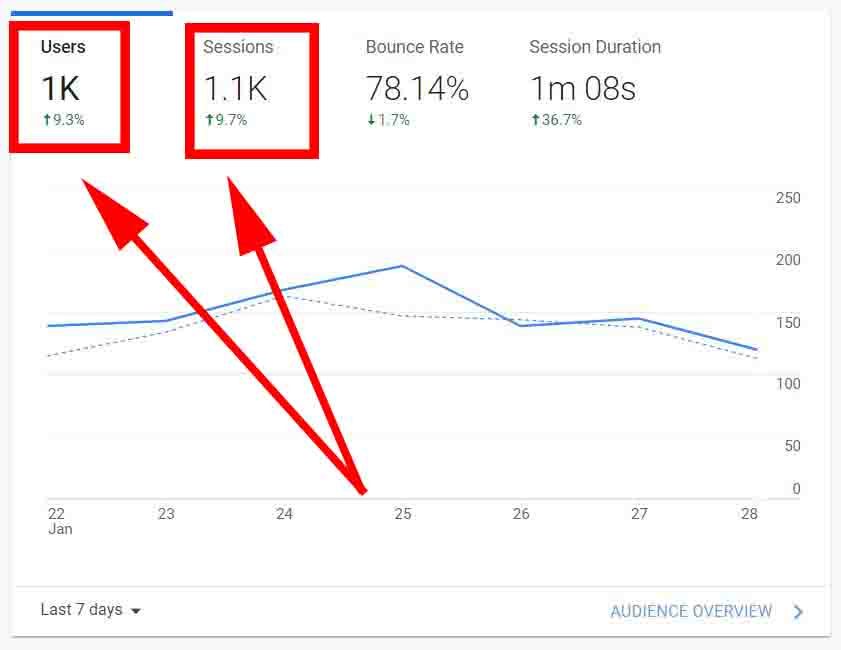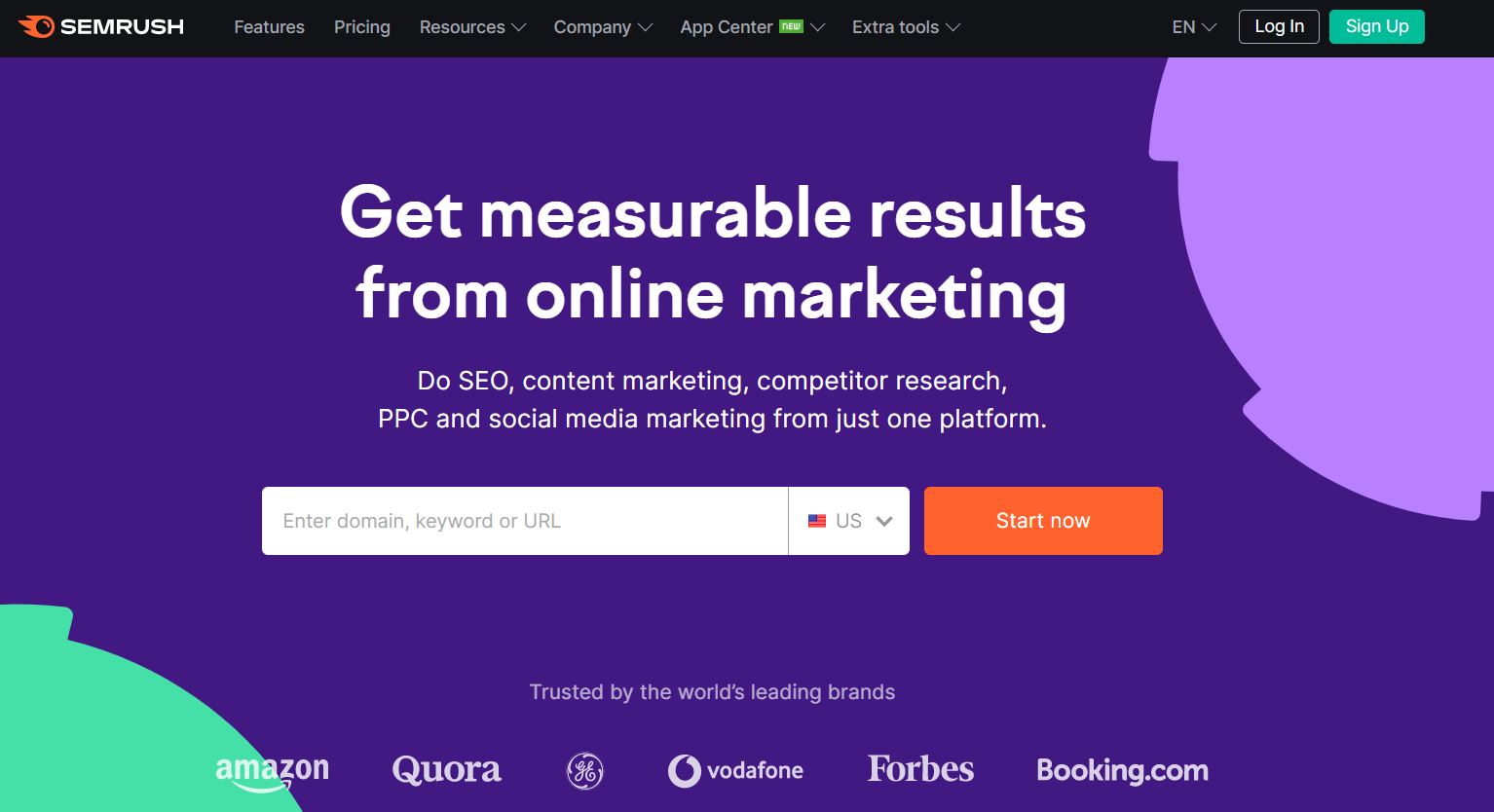In this post, I’ll show you how to rank on the first page of Google fast.
I went from working years on websites to get a few hundred visitors a month to creating brand new websites that get thousands of visitors in a couple of months.

It took me an incredibly long time to figure out SEO despite having all the information in the world about SEO. I’d always feel like I had zero control over the ranking process.
I’d create content, optimize it for SEO, and leave it to the SEO gods to do their thing.
That changed when I stopped being a content writer and start thinking like an actual digital marketer.
In contrary to what people believe, digital marketing is about more than creating content.
At its core, it’s about researching the best opportunities and exploiting them.
How to exploit SEO opportunities
The more content you create, the more gateways there are for people to get on your website. The problem is only a small percentage of content is ranked on the first page.
If you want your content to join that group then creating quality content isn’t enough. You have to think as a digital marketer and create content intended for spaces where it has a high chance of succeeding.
This requires research that most people don’t do.
Below I have 7 steps that you can use to find what ranking opportunities work the best for your website.
1. Picking the right niche
This is common knowledge for most people that have followed at least 1 SEO course but I thought I’d repeat it just in case. Your niche will often dictate how long it’ll take to get traffic.
The more popular the niche is you choose, the more work and out-of-the-box thinking it’s going to take to get some eyes on it. Lately, my stance on niches has started to soften a bit because I’m seeing more friends having success in niches despite their competition.
The only niches I wouldn’t recommend getting into are YMYL niches if you want to succeed asap.
YMYL stands for Your Money, Your Life. This is a category of niches that can affect people their lives if the wrong information is given. Google has made it because of this reason harder to rank content directed to these niches.
A few examples of such niches are:
- Financial niches
Make Money Online, Trading, Insurance, etc. - Medical/Health niches
Medicine, Corona, etc. - Law-related niches
Is it impossible to succeed in these niches? No, but you often need to prove that you have sufficient knowledge in these niches before you get ranked.
2. Identifying your competitors
There are limited spots on the first page of Google. This is why it’s important to know how many websites you’re competing with and how much authority their content has in the eyes of Google.
You can easily find competitors by typing the keywords (phrases used to find content on Google) you intend to target into Google and seeing which websites show up in the search results. These people are all your competitors.
If you have a brand new website most of the people that are on the first page of the keywords you typed in will have a lot more authority than you making the chance of outranking them low.
This doesn’t mean that you have no chance of ranking but if you want to rank fast you should find competitors that have the same domain authority as your website.
What is Domain Authority?
Domain Authority is a metric going from 0-100 created by Moz to calculate the likelihood of a website ranking on Google. This metric is made up of factors such as:
- Age of website
- Number and quality of websites linking to your website
- Quality of content
- and much more
You can go through every search result page manually and try to find these competitors or you use marketing research tools to find them all in one go.
3. Identifying their top pages
The top pages of your competitors are the ones that have been the most clicked on. These are often the pages they ranked the highest for on Google. Make a list of all the competitor’s top pages and see if you can find the keywords they were targeting on these pages.
4. Finding the content pattern
The type of website you have will also dictate what you rank for. A website about medicine will generally not rank high for a keyword such as “Top sneaker sales in Texas” which is logical but it can go even deeper.
Depending on how broad your niche is you can even have a harder time ranking for niche-related keywords. Your niche could be speedboats but might rank easier for speedboat engine-related keywords than speedboat paint-related keywords.
This is why you group your keywords in sub-categories and by experimenting to see which subcategory you have better results and focus mostly on this group.
The goal for this step is not to purposely steal your competitors but to start refining your niche so you can have more success by coming up with your own keywords.
The more you can refine your niche and your awareness increases about what content works for your website the better your results will be.
5. Identify page authority of targeted keywords
Aside from website authority you also have a metric called page authority. As the name says, this metric gives you an insight into the authority of the specific page in the search results.
Many factors go into determining the page authority but the ones most important for you are the quality of the content, the links on this page, and the backlinks directed to this page.
You might have the same domain authority as your competitors but thanks to these 2 factors can have much lower page authority. I’d start putting these keywords again in different categories based on how high their page authority is.
I’d prioritize the content that has page authority similar to my domain authority and go from there.
Here’s an example of the template I use to categorize my content:
Keyword management
Prio 1
- Keywords targeted by pages ranking on Google’s first page
- The website has the same domain authority as my website
- The page has the same page authority as my domain authority
- A low number of competing websites
Prio 2
- Keywords targeted by pages ranking on Google’s first page
- The website has the domain authority than my website
- The page has the same page authority as my domain authority
- A moderate number of competing websites
Prio 3
- Keywords targeted by pages ranking on Google’s first page
- The website has the same domain authority as my website
- The page has the same page authority as my domain authority
- A high number of competing websites
There are a lot of categories aside from these that you can target but for this post, we’re focusing on ranking as fast as possible.
6. Create content targeting the keywords
Now that you have the keywords you can start creating content targeting these keywords. Just making content isn’t going to be enough to rank high. You’re going to have to create high-quality content that is worthy of being on the first page.
Things that are important to incorporate in your pages are:
- In-depth content that is valuable to the niche
- Internal links to other content on your website
- Linking out to high authority websites that can verify the claims you make in the content.
- Images, videos, and other visual elements.
7. Build backlinks to those pages
The job is not done after the content is published. You’re going to pro-actively increase the page authority of the content by having other relevant websites with high domain authority link to your content.
There are a lot of ways you can achieve this but I’d recommend emailing other websites and seeing if they’re willing to link to your content. Most won’t do it if you just ask them without giving them something in return.
The most common way of getting backlinks is guest posting but depending on your skillset and your creativity there are hundreds of things you can do such as:
- The Skyscraper technique
- Creating guest infographics
- Create an interview section in your content and have the guest promote the content.
What you can offer will be different depending on your skillset and life experience but the more you do this, the higher your chances will be to rank on the first page.
As a result of building links, your domain authority will increase which also means your default page authority without link building will increase.
How To Get Pro SEO results Without Being A Pro
I have given you the steps to getting traffic to your website by ranking on Google fast but I understand without the proper tools doing this manually could take a long time.
This is why I recommend taking a look at this all-in-one SEO tool that:
- Audits the SEO of your website and content
- Identifies and filters your competitors (based on Domain Authority, Page Authority, Traffic numbers, etc.)
- Monitor your competitors progress
- Find their top pages
- Calculate your chances of ranking for keywords based on all the factors I mentioned.
- Automatically supply you with new ranking opportunities.
- and much more.
It's called SEMrush!

Its features give people without expert SEO knowledge the chance to keep up with actual pros.
Interested in trying it out for free?
Click here to sign up for a free trial
If you have any questions about this subject leave a comment.
That’s all for today
See you at my next post!


This is a truly helpful article, Having some success myself on pages ranking #1 I haven’t really done much on back linking which after reading this I think I will start to be more proactive. My site has been live for over a year now and attracting c500 visitors per month so really looking to crank this up into the 000’s. Thanks for your advice on this. Dan
Hey Dan,
Great to hear you’re having success. Linkbuilding can help a lot with ranking your website. Just make sure you build links to the right pages by looking at the page authority and how many links they have.
I once ranked 3rd for a page of mine and spend 3 full months building links before I found out that my competition had 100 more links than my content. It would’ve taken forever to outrank that page.
Thank you very much for giving these tips. I started to rank well for some keywords. But I have not been able to crack down the code and get good rankings for everything I publish. But after reading your post, I discovered that I was missing some things. I will try to discover this pattern you talked about. Thank you!
I’m glad you liked the post!
There are multiple ways to reach the goal but finding patterns in what kind of content ranks easier seems to work for me.
These steps will have Google eyes on you, when choosing a niche thought should be taken as to what you are not only passionate about but what you are knowledgable about. Growing a blog is not simple but there are some blogs by their nature can bring massive traffic provided you do your homework. Thanks so much for sharing!
Hey Norman,
Glad you liked it and thanks for the advice!